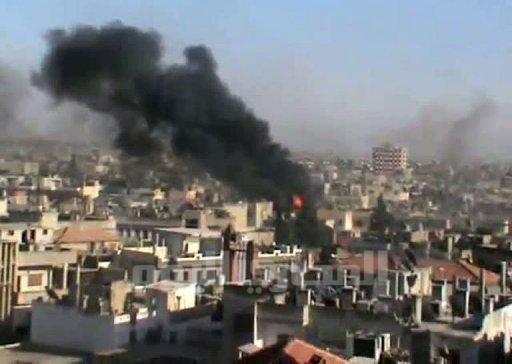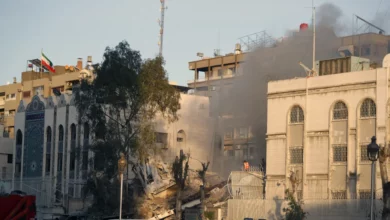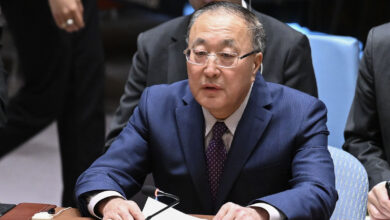
UN observers in Syria suspended their activities and patrols Saturday because of escalating violence in the country, the head of the mission said, the strongest sign yet that an international peace plan for Syria is disintegrating.
Major General Robert Mood said rising bloodshed over the past 10 days was posing significant risks to the lives of the some 300 observers in the country, and was impeding their ability to carry out their mandate.
The observers were sent to the country after international envoy Kofi Annan brokered a peace plan that included a cease-fire that was supposed to take effect on 12 April. But both sides have continued to stage daily attacks and the observers themselves have been caught up in the violence on several occasions.
"UN observers will not be conducting patrols and will stay in their locations until further notice," Mood said in a statement Saturday. He said the observers will not leave the country, and the suspension will be reviewed on a daily basis.
"Operations will resume when we see the situation fit for us to carry out our mandated activities," he said.
The suspension signals the unraveling of Annan's plan as the conflict that began in March 2011 with peaceful protests challenging the regime spirals closer toward civil war. Activists say some 14,000 people have been killed in the conflict.
Western powers have pinned their hopes on the plan, in part because there are no other options on the table. The international community has little appetite for the military intervention that helped oust Libya's Muammar Gadhafi, and several rounds of sanctions have failed to stop the bloodshed.
"The lack of willingness by the parties to seek a peaceful transition, and the push towards advancing military positions is increasing the losses on both sides," Mood said. "It is also posing significant risks to our observers."
The observers have been tasked with monitoring the cease-fire and supporting the full implementation of Annan's six-point plan, which was supposed to lead to talks between the sides.
Last week, an observers' convoy was blocked and attacked as it was trying to head to the town of Haffa in the coastal Latakia region, where troops had been battling rebels for a week.
The observers only managed to get in once government troops had seized the area back from the rebels.
On 15 May, a roadside bomb damaged observers' cars shortly after they met with Syrian rebels in the northern town of Khan Sheikoun. A week earlier, a roadside bomb struck a Syrian military truck in the south of the country just seconds after Mood drove by in a convoy.
Still, their presence has been an important source of independent information, particularly as Syria bars journalists from reporting freely in the country.
Despite fears that violence could significantly worsen without the their presence on the ground, prominent activist Rami Abdul-Rahman of the Syrian Observatory for Human Rights said it was better for the UN teams to leave.
"We haven't seen anything beneficial from them. If they are independent — so what?" he said. "A lot of crimes happened in Syria, and they couldn't do anything."
He called on the international community to more actively intervene to halt the bloodshed in Syria.
"The situation can't get worse than this: Are we afraid that it's a civil war? Well it is a civil war. The situation is difficult. The international community's silence on Syria is working to destroy Syria," Abdul-Rahman said.




